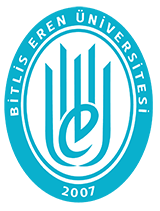Performance Benchmarking of Classical Statistic, Machine Learning, and Deep Learning Time Series Models in Forecasting Measles Cases
Abstract
In the globalizing world, the reduction in travel time has facilitated the spread of infectious diseases, particularly those transmitted through contact and respiratory secretions. Measles, a highly contagious disease easily transmitted via respiratory droplets, continues to be a significant public health threat. Despite being largely preventable through vaccination, the measles virus remains endemic in regions with low vaccination rates, impacting public health in countries receiving migrants from these areas. Accurate computer-aided forecasting of measles outbreaks can assist policymakers in making informed decisions to prevent the spread of the disease. This study compares the performance of different time series models, including classical statistical methods, machine learning, and deep learning techniques, in forecasting the number of measles cases. For performance evaluation, a comparative analysis was conducted on datasets from Benin, Cameroon, and Nigeria. The forecasting performance of the models—ARIMA, HW, LSTM, Greykite, Prophet, and XGBoost—was assessed using RMSE, MAPE, MAE, and MSLE evaluation metrics. The models were trained on the first 147 months of data from each dataset, with their forecasting performance evaluated over the subsequent 12 months. The study results reveal that the XGBoost model achieved the lowest MSLE in predicting measles cases for Benin (0.08) and Nigeria (0.69), while the LSTM model performed best for Cameroon with an MSLE of 0.67. Using the developed computer-aided system, the next six months of measles cases were forecasted for these countries. To our best knowledge, this study is one of the first to benchmark different time series models, using diverse datasets in forecasting measles cases. The findings suggest that artificial intelligence-based prediction systems can play a crucial role in preventing the spread of infectious diseases like measles and in developing effective health policies.
Collections

DSpace@BEU by Bitlis Eren University Institutional Repository is licensed under a Creative Commons Attribution-NonCommercial-NoDerivs 4.0 Unported License..













